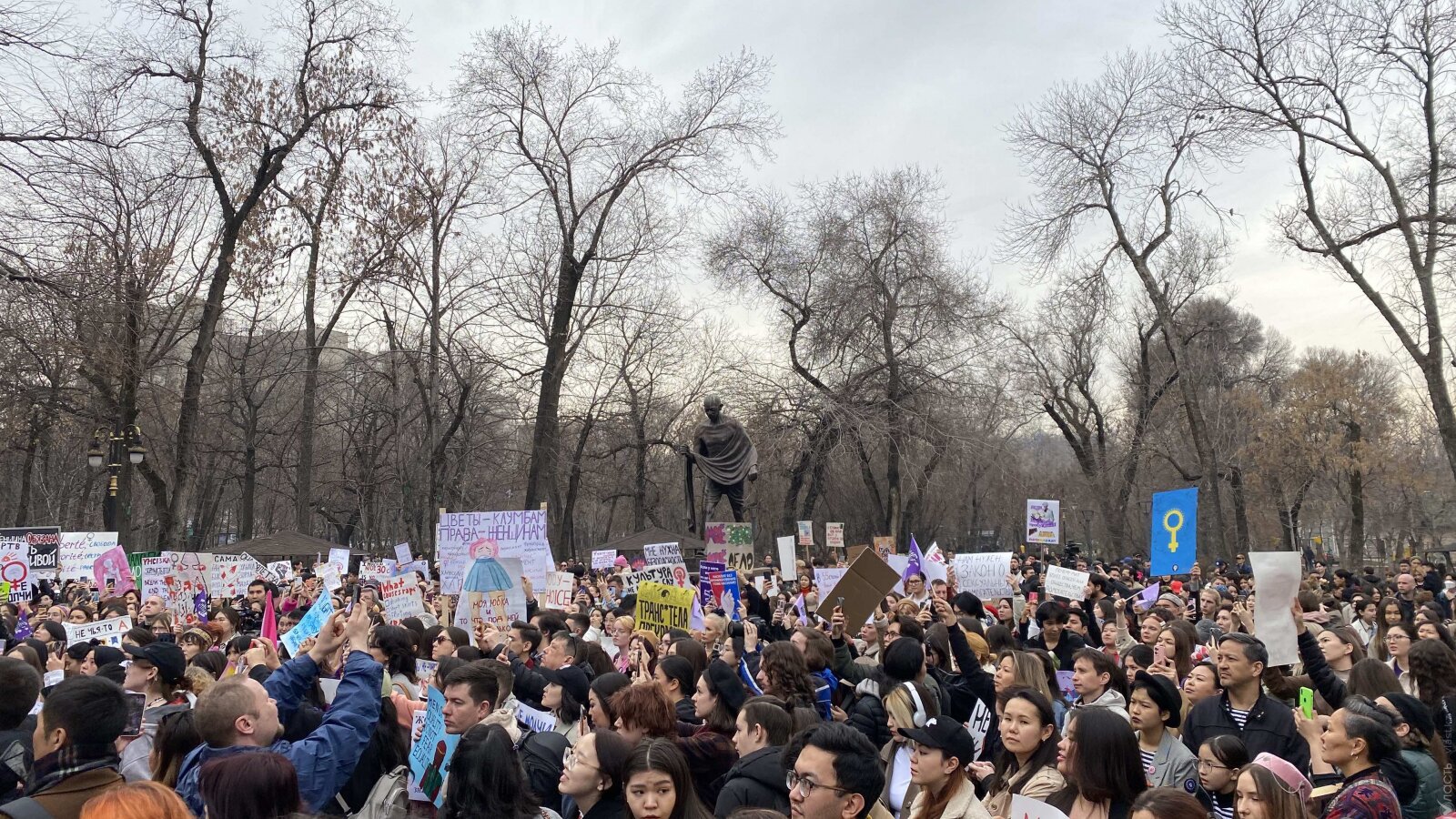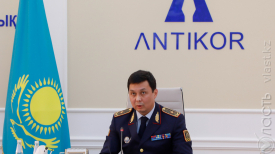- ВКонтакте
- РћРТвЂВВВВВВВВнокласснРСвЂВВВВВВВВРєРСвЂВВВВВВВВ
A rally organized by several feminist organizations took place in Almaty on International Women’s Day on March 8. Around 700 people participated in the demonstration, which local authorities confined to a park on the edge of the city center. One of the loudest demands at the rally focused on the adoption of a clear-cut law against harassment. Earlier attempts by feminist groups to hold a march through the city were thwarted by the city administration.
Last week, we wrote that the ministry of internal affairs had charged O. Tokarev and four other foreign citizens for organizing a range of attacks against journalists in recent months. On March 4, however, the ministry and the secret service (KNB) said they arrested local resident Arkady Klebanov (Manevich), who confessed to having organized the attacks. The ministry failed to clarify the relationship between Tokarev and Klebanov and the motive behind the attacks.
On March 6, Tokayev met with Nataliya Godunova, the head of the Supreme Audit Chamber, and tasked her agency to focus their monitoring activities on the heating and power infrastructure of the country. In December, a thermal power plant failure left the city of Ekibastuz without heating for 11 days, while temperatures were extremely cold (around -30C).
A court in Atyrau is considering a lawsuit filed by Senimdi Kurylys, a construction company linked to the oil sector, against 69 of its workers for having gone on strike on February 11, demanding a salary increase and better working conditions. The trial started on March 7 and the company argues that the workers failed to observe the proper procedures for organizing the strike, according to the Labor Code. The International Labor Organization has repeatedly said that Kazakhstan’s labor legislation fails to protect the right to strike, enshrined in ILO’s Convention n. 87, which Kazakhstan ratified in 2000. During a meeting with Tokayev, Senate speaker Maulen Ashimbayev said the legislative plan for 2023 is to adopt a new law to regulate labor disputes.
On March 9, the Senate approved a range of amendments to the Criminal Code aimed to tighten sanctions against the organization of mass riots. The maximum sentence was increased from three to five years and the new article 272 excludes the release on parole. The bill is now on Tokayev’s desk awaiting the final signature.
Ex-minister of defense Murat Bektanov was sentenced to 12 years in a maximum-security prison for “giving illegal orders” and “abandoning key military facilities” during Bloody January last year, according to the general prosecutor. The outcome of the sentence, imposed on February 24, became public only on March 9. The trial was conducted behind closed doors.
On March 7, at CERAWeek, an oil and gas-focused conference organized by ratings agency S&P Global in Houston, Texas, energy minister Bolat Akchulakov said that in the next few years Kazakhstan plans to build an oil pipeline to the Caspian Sea port of Kuryk and increase its oil shipments via tanker. The project, which the minister said would take at least five years to complete, would diversify export routes for Kazakhstan’s oil.
Tokayev talked with Russia’s President Vladimir Putin via telephone on March 6, highlighting the need to improve transit infrastructure and trade links.
On March 4, S&P Global affirmed Kazakhstan’s sovereign credit rating at ‘BBB-’, while raising its outlook from ‘negative’ to ‘stable’. According to S&P analysts, the growth in sovereign reserves and the fiscal stability shown by the government have contributed to offsetting the risks of future potential interruptions at the Caspian Pipeline Consortium - the pipeline through Russia that transports around 80% of Kazakhstan’s oil exports and often suffered interruptions in 2022 and earlier this year.
The Ukrainian regulator gave the green light on March 9 to a citizen of Georgia to buy shares in BTA Bank Ukraine. The current owner of the bank is Kenes Rakishev, one of Kazakhstan’s richest men and the son-in-law of Imangali Tasmagambetov, the general secretary of the CSTO, a military organization among former Soviet countries.
The US Treasury Department said it will no longer consider Bereke Bank under sanctions as of March 8. Bereke Bank was owned by Russia’s Sberbank until last year, when its shares were transferred to Kazakhstan’s national holding, Baiterek.
Поддержите журналистику, которой доверяют.








